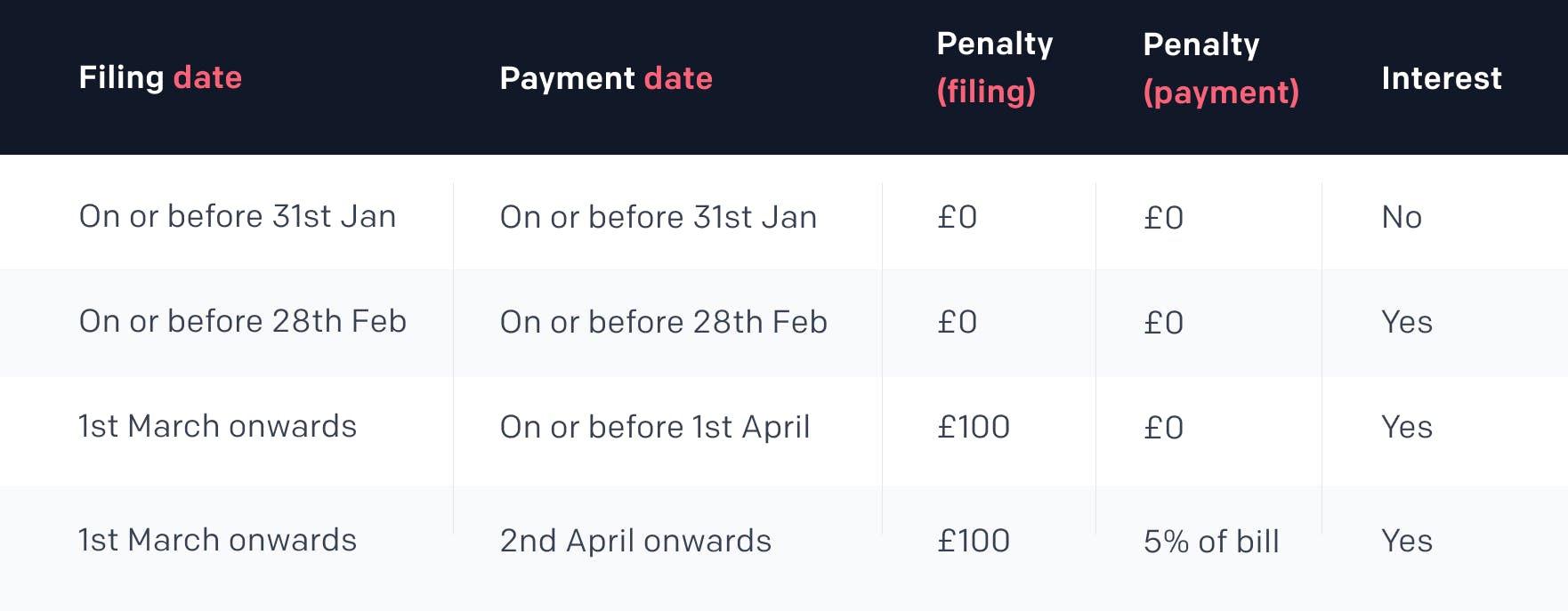
What are late Self Assessment penalties?
January 12, 2022What are the Self Assessment penalties?
Penalties for missing the Self Assessment tax return deadline
Penalties for missing the Self Assessment payment deadline
| Late filing | Late payment | Penalty |
|---|---|---|
| Missed deadline | £100 | |
| 30 days late | 5% of tax due | |
| 3 months | £10 per day for 90 days | |
| 6 months | 5% of tax due or £300 (whichever is greater) | |
| 6 months | 5% | |
| 12 months | 5% of tax due or £300 (whichever is greater) | |
| 12 months | 5% |
When will I start getting penalties?
What are the Self Assessment deadlines for the 2020/21 tax year?






